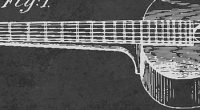
Cash vs Accrual Accounting Methods
Businesses can use two methods of accounting for their income and expenses, cash or the accrual method.
Cash accounting is based on the cash received and the cash paid out. In cash accounting, if you invoice a client you don’t record that as income until you actually receive the cash from the client. With expenses when you receive a service or good and get the invoice, nothing is recorded until you actually pay the expense.
With accrual accounting you record income and expenses when they occur, not when the cash is received or paid out. For example, if an accountant invoices a client for taxation services with payment due in 30 days, the accountant will record the income on the date of invoice, not in 30 days when the client pays. The financial statements for a business using accrual accounting will include debtors (which is income invoiced, but not paid for yet), and creditors (which is expenses incurred, but not paid for yet).
In taxation ruling TR 98/1 the ATO advises that the accrual method is most appropriate for businesses deriving income from a trading or manufacturing business. In contrast the cash method may be suitable for employee and personal services related income.
Generally cash accounting is best suited to smaller businesses like hairdressers, sole trader service businesses, etc.
Accrual accounting is more complicated than cash accounting and should be used by the majority of businesses as it tracks the true financial position of a business as it includes money that is owed and money owing.





